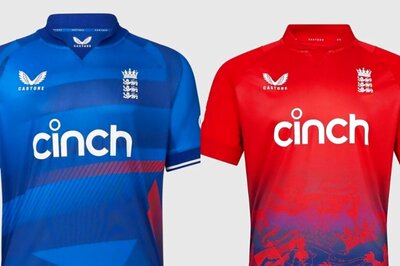
views
What is the Olive Theory?
The Olive Theory supports the idea that opposites attract. The Olive Theory, originating in the sitcom How I Met Your Mother, states that if one person in a relationship likes olives and the other person doesn’t, they’re compatible. It’s meant to show that there’s balance in the relationship. The theory is likely based around olives because they’re a polarizing food; most people either really like them or really hate them. In How I Met Your Mother main character Ted Mosby believes in the Olive Theory because his friend Marshall hates olives and Marshall’s fiancée Lily loves them. Ted sees that they have a healthy relationship and wants one like it. This is the version of the Olive Theory most people discuss on social media sites, like TikTok.
The “true” Olive Theory is about compromising in relationships. In How I Met Your Mother, it’s later revealed that Marshall secretly likes olives and just told Lily he hated them because he was attracted to her. He continues to give her his olives throughout their relationship. This is another version of the Olive Theory—that relationships come with give-and-take and sacrifice, even if it’s something as small as sharing your olives with the one you love. This version of the Olive Theory shows more of the true reason that Lily and Marshall are so compatible. It’s not because one likes olives and one doesn’t, but because one is willing to give up something they like so the other person can enjoy it.
The Olive Theory in How I Met Your Mother
The Olive Theory is introduced in the first episode of How I Met Your Mother. In the pilot episode of this popular sitcom, the main character Ted believes that if one person in a relationship likes olives and the other doesn’t, it’s a sign that they’re compatible. He believes this because his friend Marshall hates olives while his fiancée, Lily, loves them. Ted applies the Olive Theory to his own love life, testing it out when he goes on dates. In the episode, Ted goes on a first date with Robin and believes he will marry her because she doesn’t like olives and he does. However, it is then revealed by their friend Barney that Marshall doesn’t actually hate olives and just pretends so he can give his to Lily.
The Olive Theory foreshadows Ted and Robin ending up together. While Ted and Robin date for a while, they eventually break up. Later on in Season 9, it’s revealed that Robin has changed her mind and now likes olives. This gives Ted hope that her feelings toward him may also change, which is eventually confirmed in the series finale when they finally get together.
Is the Olive Theory real?
The Olive Theory isn’t really a good test of compatibility. While the Olive Theory is a fun way to test if opposites attract, it probably isn’t the best idea to base a real relationship off of it. There are many more important factors to compatibility than whether or not you and your partner enjoy the same foods. So, don’t worry—your relationship isn’t doomed just because both of you like olives.
How to Tell if You and Your Partner Are Compatible
You have shared morals and values. While it’s nice if you and your partner enjoy the same music, food, and other interests, there are bigger factors in determining your compatibility. It’s usually important for partners to share similar views on things like family, religion, politics, and general life and world views. Make sure you and your partner are on the same page so it doesn’t lead to tension down the line. It’s up to you to decide what’s important for you and your relationship. For example, having shared religious views may be important to one couple and not important at all to another.
You communicate openly and honestly. In a healthy relationship, both you and your partner should feel safe speaking up. You shouldn’t feel like you’re walking on eggshells or that you have to hide your feelings from your partner. Let them know when something’s bothering you and listen to your partner’s concerns so you can work together to solve problems. For example, if you actually really like olives but your partner thinks you hate them, it’s okay to tell them the truth. This applies to more important issues, as well. To communicate better in a relationship, remember to use “I” statements when talking about your feelings toward a situation. This helps you to avoid placing the blame on your partner.
You embrace your differences. It’s great to have common interests in a relationship, but odds are, you’re not going to agree on everything. And that’s okay! Remember that you and your partner are both individuals who have the freedom to be yourselves. When you’re compatible, you won’t feel the need to change each other.
Other Relationship Theories
The Orange Peel Theory The Orange Peel Theory is a relationship theory popularized by TikTok that states if a partner is willing to do small acts of service (like peeling an orange) for you, it’s a sign you have a healthy relationship. People would post videos asking their partner to peel an orange to see if they’d do it or question why the other person couldn’t peel it themselves.
The Invisible String Theory The Invisible String Theory is the idea that everyone is connected to their soulmate (be it platonic or romantic) by an invisible string that ties them together before they even meet. The idea is that you’re fated to meet your soulmate at the right time.
The Bird Test The idea of the Bird Test is that if you point out something seemingly insignificant, like a bird outside the window, and your partner responds with genuine interest, the relationship will likely last. This is because your partner takes interest in things that interest you, even if it isn’t something they’d normally care about.
The February Theory The February Theory is another theory popularized by TikTok which states that most relationships start or end in February. Many who believe in this theory claim that you’ll fall for someone unexpectedly or an ex will suddenly come back into your life during that month.




















Comments
0 comment